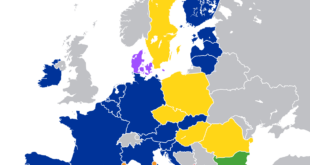- Union Minister of Education and Minister of Skill Development & Entrepreneurship Shri Dharmendra Pradhan launched the draft of National Credit Framework (NCrF) for public consultation here today.
- Taking the vision of the new National Education Policy (NEP) as envisioned under the dynamic leadership of Prime Minister, Shri Narendra Modi, the Government of India has developed the National Credit Framework (NCrF) to enable the integration of academic and vocational domains to ensure flexibility and mobility between the two. NCrF would be a game changer by opening numerous options for further progression of students and inter-mingling of school and higher education with vocational education and experiential learning, thus mainstreaming skilling and vocational education.
- NCrFwill also enable students who have dropped out of the mainstream education to re-enter the education ecosystem.
- Speaking on the occasion Shri Pradhan said that Jan-bhagidari is a key pillar of the Prime Minister Narendra Modi’s governance and NEP 2020 also embodies the spirit of Jan-bhagidari.
- National Credit Framework is a next generation, multidimensional instrument under NEP. We are dedicating NCrF for ‘Jan-paramarsh’ for making it more dynamic.
- National Credit Framework is an umbrella framework for skilling, re-skilling, up-skilling, accreditation & evaluation encompassing our people in educational & skilling institutions and workforce.
Shri Pradhan stressed that we have to make India a $5 trillion economy, accomplish the vision of a Vikasit Bharat in the next 25 years and empower 100% of our population and National Credit Framework will be the most important instrument under NEP for realising these goals. India is adopting technology at an unprecedented pace. - We have to bring reforms to incentivise knowledge, skills & experience. Credits for knowledge acquisition, hands-on training, positive social outcomes will be a key step for achieving 100% literacy in the next 2-3 years, he added.
- The Minister appealed to all institutions, schools, ITIs, AICTE-affiliated engineering colleges, centrally-funded HEIs, state universities and regulatory authorities/bodies to host the public consultation for National Credit Framework on their website for seeking suggestions from citizens.
NCrF will seamlessly integrate the credits earned through school education, higher education and vocational and skill education by encompassing the National Higher Education Qualification Framework (NHEQF), National Skills Qualification Framework (NSQF) and National School Education Qualification Framework (NSEQF). - It also supports educational acceleration for students with gifted learning abilities and Recognition of Prior Learning for the workforce that has acquired knowledge and skills informally through the traditional family inheritance, work experience or other methods..
Benefits
NCrF will ensure Flexibility in the duration of study/ courses through provisions of multiple entries and exit/work options as well as pave the path for creditisation of all learning hours, including academic, vocational and experiential learning. It will also give the provision for lifelong learning – any time anywhere learning: It will also help students by:
- Establishing multidisciplinary and holistic education with flexible curricula
- Removing the hard distinction between the education stream and making study choices respectful, allowing for more than one award in the same period
- Removing the distinction between arts, science, social sciences, commerce, etc
- Giving student credits for every academic/ skill/ experience
- Enhancing the scope of core learning to include foundational and cognitive both
- Institutions: NCrF will bring about a unification of higher education institutions to promote multidisciplinary education, creating a diverse and rich students knowledge base. It will also help in:
- Promoting stronger collaboration between institutions
- Making credit mechanism simpler and uniform
- Increasing focus on research and innovation
- Promoting digital learning, blended learning, and open distance learning
- Leveraging the institutional infrastructure
- Government: NCrF is expected to assist the government to increase the enrolment of students, helping to fulfil the national vision of complementing the demographic dividend and transforming India into the Skill Capital of the World. It will also:
- Making vocational education and training/ skilling aspirational
- Highly educated and trained workforce for Aatmnirbhar Bharat
- Industry: NCrF will allow students to attain NSQF-approved foundational skills developed by industry and be more employable. The provision of micro-credentials will allow integration of quick educational upgradation/ up-skilling It will also help in:
- Re-Skilling and up-skilling of existing employees/ engineers
- Making students more employable by enabling a more holistic design of the study
- Creating a multi/ cross-sectoral skilled pool of employable youth
SOURCE: THE HINDU, THE ECONOMIC TIMES, PIB
 Chinmaya IAS Academy – Current Affairs Chinmaya IAS Academy – Current Affairs
Chinmaya IAS Academy – Current Affairs Chinmaya IAS Academy – Current Affairs



